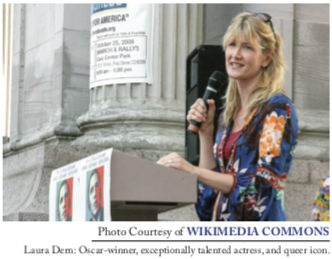There is only so much of the same group of superheroes that you can watch before things start getting a little bit stale. With the Avengers played out, X-Men beaten to death, and real hits like Deadpool, Ant-Man, and The Guardians of the Galaxy coming few and far between, Disney’s revamp of Marvel was in dire need of a new face.
Enter Black Panther. Black Panther has everything that those other films lacked. First and foremost, coming into the theater, you do not need to know anything about the Marvel universe or the hero’s backstory; the film starts from square one. While Black Panther is a great action movie, with riveting fight sequences and chase scenes, it also provides a great social commentary and finally a movie superhero with which the black community can identify.
Welcome to the African nation of Wakanda, outwardly unassuming but inwardly an incredibly advanced society nested on a reserve of the metal Vibranium. Vibranium allows the people of Wakanda to create impressive, futuristic technology, which they use to defend against outsiders and to enhance their king with the superhuman powers of the Black Panther. When Prince T’Challa (Chadwick Boseman) takes over the throne, he is challenged by outsider Erik Killmonger (Michael B. Jordan), who has different plans for the direction of Wakanda.
Killmonger wants to use Vibranium to aid black people all over the world in their fight for racial equality, a sentiment shared by some Wakandans and in part by T’Challa. This is one of the most interesting and unique parts of Black Panther; the so-called “bad guy” is fighting for freedom and equality, two generally desirable characteristics of a society. For the first time in my memory, you are not quite sure whether or not to root for a Marvel hero.
Black Panther discusses issues and connects them in a very tangible way to the real world, something that is not easy to do in the fantastic and surreal Marvel universe. Shots of kids playing basketball in Compton and a brief sequence detailing African slave traders bring to the attention of the audience just how real the problems the film discusses are.
For those who are not looking for political and social commentary in their superhero movies, Black Panther is still a great watch. T’Challa’s backstory is simple yet effective, making for a readily likeable hero who is easy to understand on the surface but far deeper if you care to look. He is defined by the conflict between older culture and newer innovation, a struggle that is evident in our everyday lives and even in the transition from Marvel comics to Disney movies like this one.
The Black Panther is also just plain awesome to behold. He has the catlike reflexes and superspy abilities of Batman, along with a bodysuit to rival Iron Man’s. While his physical superpowers are somewhat ambiguous, his ability to fight off scores of armed warriors makes it clear that he is one of the heaviest hitters on the planet, at least as far as Marvel is concerned.
But what so many people come to superhero movies for is the unadulterated action. And Black Panther provides that in scores. T’Challa moves almost like a cat, striking lethally with martial arts knowhow, parkour skills and the claws of a wild tiger. What other movie lets you watch a battle sequence involving domesticated rhinoceri, close-range, almost primitive weapons and futuristic laser blasters all at the same time?
In short, Black Panther offers something different for every moviegoer. If you are looking for a film that addresses the black community in a way no other superhero has ever been able to do, go see Black Panther. If you are looking for just a plain good action movie without a complex backstory and with likeable protagonists, go see Black Panther. Heck, if you want a good laugh, go see Black Panther. Sure, there are a couple of bad puns, but what superhero movie is complete without those?
3.5/4







































